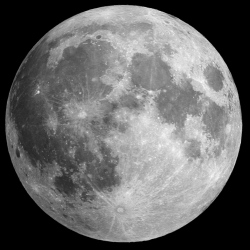
In 1962 that President John F. Kennedy delivered the now-famous line in a speech at Rice University in Texas: "We choose to go to the moon in this decade and do the other things, not because they are easy, but because they are hard." Seven years later, Apollo 11 launched and the first humans first walked on the lunar surface.
It took a Cold War space race with the Soviet Union to spur such statements and spark the United States’ manned rush to the moon, a race that led to the first manned lunar landing with Apollo 11 on July 20, 1969. Once the last Apollo mission, Apollo 17, wrapped up in 1972, no human has returned. NASA has sent lunar probes, but today, the agency is focused more on a potential human asteroid visit and putting boots on Mars. Other countries, on the other hand, are starting to think about manned lunar missions.
"NASA is not currently considering a human return to the moon and remains focused on the asteroid-retrieval mission," James Clay Moltz, a professor in the department of national security affairs at the Naval Postgraduate School in Monterey, California, wrote in an email to Space.com.
Before President Barack Obama took office, NASA was operating under the George W. Bush-led vision called Constellation, which included a plan to return to the moon. "The Obama administration made the calculation that President Bush’s Constellation program was unaffordable and that, in terms of science, there was nothing ‘new’ offered by returning to the moon," Moltz added. "A Mars mission is still a U.S. goal, but it remains a long way off, especially given the current lack of independent U.S. human access to space."
